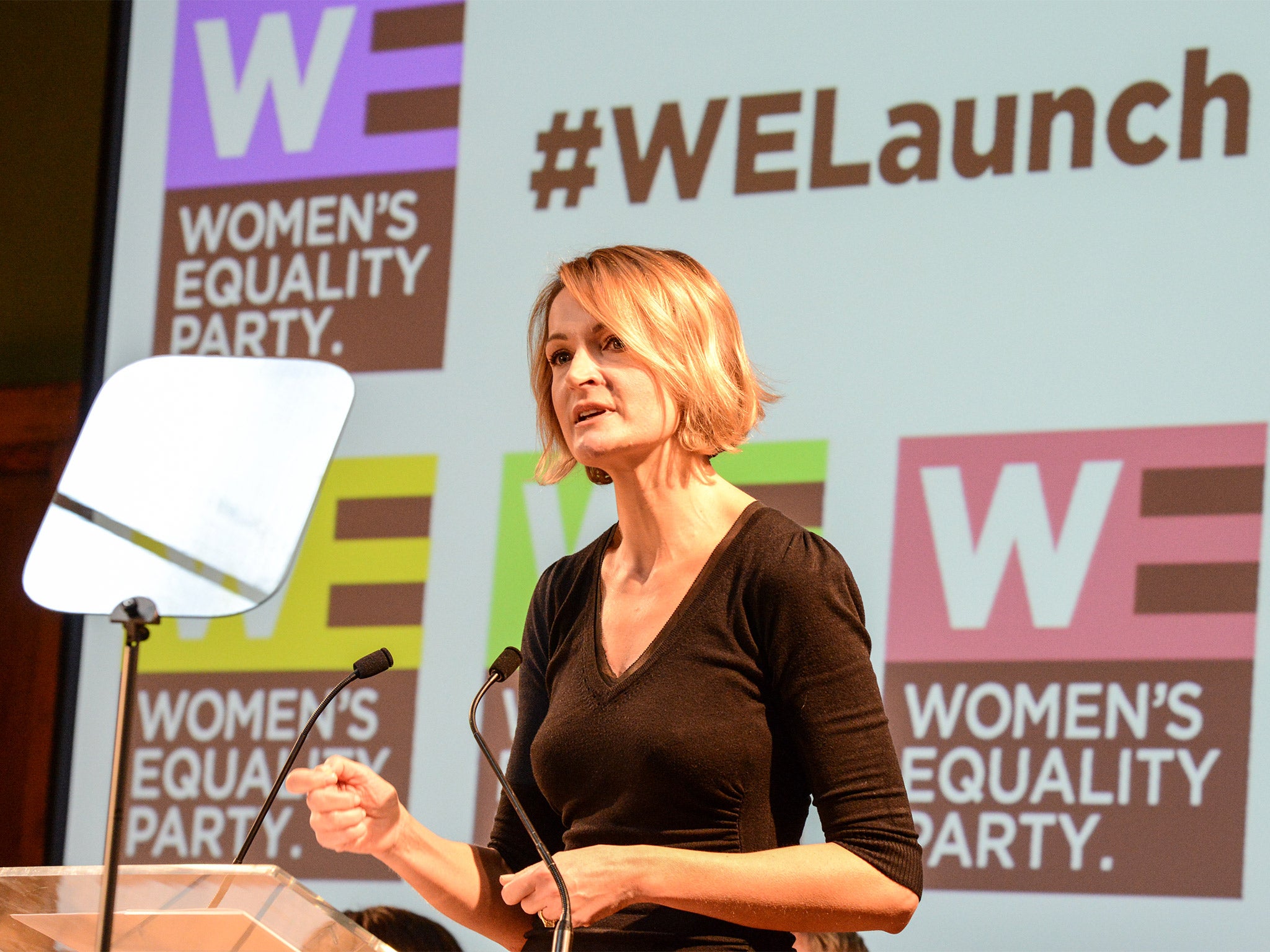Women's Equality Party gets more than 350,000 votes and beats George Galloway in London
One in every 20 London voters pick the newly formed Women's Equality Party as either their first or second choice in the Mayoral ballot

Your support helps us to tell the story
From reproductive rights to climate change to Big Tech, The Independent is on the ground when the story is developing. Whether it's investigating the financials of Elon Musk's pro-Trump PAC or producing our latest documentary, 'The A Word', which shines a light on the American women fighting for reproductive rights, we know how important it is to parse out the facts from the messaging.
At such a critical moment in US history, we need reporters on the ground. Your donation allows us to keep sending journalists to speak to both sides of the story.
The Independent is trusted by Americans across the entire political spectrum. And unlike many other quality news outlets, we choose not to lock Americans out of our reporting and analysis with paywalls. We believe quality journalism should be available to everyone, paid for by those who can afford it.
Your support makes all the difference.The Women’s Equality Party won more than 350,000 votes in Scotland, Wales and London – and beat George Galloway in the London Mayoral race.
The party was set up in 2015 by TV presenter Sandi Toksvig and author Catherine Mayer to highlight issues such as equal pay, access to childcare and ending violence against women. It has also won celebrity backers including actress Emma Thompson and comedian Jo Brand.
In London, a quarter of a million people named the party leader and Mayoral candidate Sophie Walker as either their first or second choice in the Mayoral election.
Ms Walker, who secured 2 per cent of the vote in London, ahead of George Galloway, told The Independent that the party would now capitalise on every electoral opportunity it could.
“This party has advanced at breakneck speed – right now we’re just taking stock,” she said. “We’re about getting the job done. Everything we do is about creating a country where women are equal to men.
“None of the other political parties talk about women’s needs, lives and experiences in any way other than as a detail…the current political system doesn’t answer women’s questions.”
She said that the party’s campaigning on the gender pay gap had pressured Sadiq Khan into prioritising the issue in his own campaigning. Mr Khan said in March he would be a “proud feminist” in City Hall and has pledged to close the gender pay gap and increase police presence on public transport at key times to lower the number of sexual assaults.
Its campaigners encountered significant support on the doorstep from women and men, she said.
“We talked to a lot of young millennial men who don’t want to work in the way they have been told they have to work,” she said. “They are not interesting in working from seven in the morning to half past ten at night and being pushed out of family in the same way they see their wives and their girlfriends and their sisters being pushed out of working life.”
Ms Walker compared the party's first election result to that of the Green Party. “In the Green Party’s first General Election result, they won 0.01 per cent, in 1974," she told The Independent.
“So for us to get 5.2 per cent overall in the London Mayoral election, just behind UKIP on 6.6, and beating George Galloway, we are really pleased.”
Mr Galloway has angered women’s rights campaigners in the past with claims that sexual assault allegations against Julian Assange were no more than bad "sexual etiquette".
“It was particularly pleasing to beat George Galloway,” said Ms Walker.
She said the controversy over Mr Galloway’s comments in 2012 was one reason why the election result was a victory for women.
The new party picked up 1.2 per cent of the vote in both the Lothian region of Scotland and the South Wales Central region.
Votes from Scotland and Wales combined with 91,772 London Assembly votes, 53,055 first preference and 198,720 second preference Mayoral votes, amount to a total of 343,547.
The party was criticised as “fearmongers” by Brendan O’Neill in a Spectator column after their billboard adverts highlighted the number of rapes that take place each day.
But Ms Walker said she was proud of the party’s positive campaign, largely conducted through door-to-door canvassing, and was looking forward to continuing the party’s work in the run-up to the next General Election in 2020.
In last year's General Election, of 650 elected MPs, 191 were women.
Join our commenting forum
Join thought-provoking conversations, follow other Independent readers and see their replies
Comments